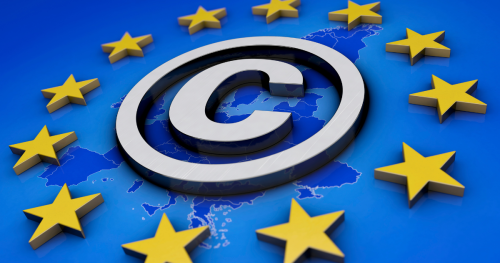 This article is part of the UPC series. It focuses on the provisions of the Rules of Procedure of the Unified Patent Court (“RoP”) dealing with the protection of confidential information during proceedings before the UPC.
This article is part of the UPC series. It focuses on the provisions of the Rules of Procedure of the Unified Patent Court (“RoP”) dealing with the protection of confidential information during proceedings before the UPC.
On April 8, 2025, the Local Division of the Unified Patent Court (UPC) in Milan issued a significant order on jurisdiction, under the direction of the judge-rapporteur Alima Zana in the case Alpinestars v. Dainese[1], applying the principles established by the Court of Justice of the European Union (CJEU) in the well-known case BSH v. Electrolux[2]. This order (available at this link) confirms the long-held assumptions by experts that the UPC has long-arm jurisdiction to issue injunctions on national portions of European patents, even for patents validated in non-UPC countries.
Key takeaways from CJEU BSH v. Electrolux
The CJEU’s decision has been eagerly anticipated by UPC practitioners. The judgment clarified that a court of a Member State can issue injunctions covering territories of other EU Member States where national portions of European patents are valid, provided that the defendant domicile is based within such court territory[3]. This occurs even though the defendant raises a counterclaim of revocation of such national portion: the court of the member state in which the national portion of the patent was granted reserves jurisdiction to revoke the patent under the Regulation but the advocated court of the domicile of the defendant can assess validity incidenter tantum in order to rule over the infringement (the CJEU although specified that the court hearing the infringement case must decide whether to suspend the proceedings based on its assessment of the likelihood of success of the invalidity claim). The same conclusion is reached by the CJEU with respect to EP patents validated in non-EU countries – in the case at stake it was Turkey – although on a different reasoning. In such a case, the CJEU considered that Brussels I-bis Regulation does not apply to non-EU countries but despite that a EU court could not invalidate a foreign patent, as this would constitute an impermissible interference under international law. However, a decision on infringement ruling incidenter tantum on the validity would remain inter partes and thus do not interfere with the legal system of the country of registration of the patent.
Practitioners anticipated that In the UPC system, could have implied that the UPC, being a court of a member state under the Brussels I-bis regulation, could establish jurisdiction over injunctions on the territories of non-contracting UPC member states where the EP is in force.
Key takeaways from Milan Local Division order Alpinestars v. Dainese
The Milan Local Division applied the CJEU’s principles and established its competence to decide on the injunction related to the Spanish portion of a European patent, despite Spain not being a UPC member. The judge-rapporteur’s reasoning is based, in a nutshell, on the fact that the UPC shall be deemed to be a court of a Member State for the purposes of the application of Brussels I Regulation, as interpreted by the CJEU. Notably, the Division overcame the obstacle of Article 34 UPCA which states that “Decisions of the Court shall cover, in the case of a European patent, the territory of those Contracting Member States for which the European patent has effect”, by saying that the rule only regulates the case in which the European patent is not validated in the entire territory of the UPC. According to the Court, a different interpretation would have the effect of recognizing that the UPC has less territorial jurisdiction than a national court.
Conclusion
The decision confirms the theories developed in recent months following the highly anticipated CJEU judgment. The UPC is reaffirmed as a powerful tool for patent enforcement, capable of issuing injunctions across borders and ensuring robust protection of patent rights, and praise to the Milan Local Division for being on point.
[1] UPC_CFI_ 792/2024 App. 61708/2024
[2] C-339/22 of February 25, 2025
[3] Under Regulation 1215/2012 (“Brussels I-bis” Regulation)


